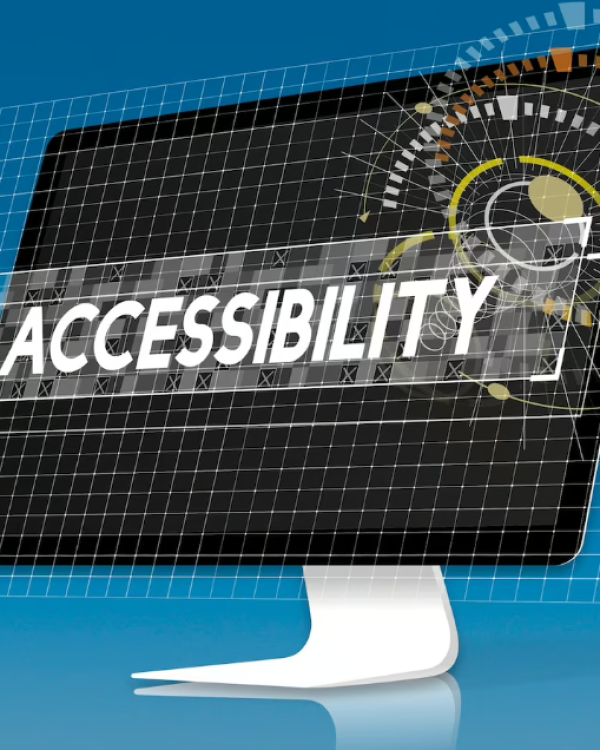Acceptable Use Policy (AUP)
HOME – Legal – AUP




Acceptable Use Policy (AUP)
Overview
DefaultCloud is dedicated to offering services at a level of excellence consistent with the best methods in the sector.
DefaultCloud’s main objective is to uphold the Internet’s value as a platform for information and unrestricted speech while also protecting the security and privacy of its users. DefaultCloud prides itself on being a responsible hosting provider and strongly disapproves of reckless behaviour that lowers the value of Internet services and the use of network resources. The behaviours that DefaultCloud forbids are listed in this Acceptable Use Policy (AUP). DefaultCloud retains the right to change the Policy at any moment, with the new version taking effect when it is posted on this website. Acceptance of the Acceptable Use Policy is a requirement for using DefaultCloud services (AUP).The customer is accountable for regularly checking for updates. (The term “Customer” refers to all users, visitors, and customers together.)
Disputes and Complaints
All abuse claims and legal disputes involving subjects not covered by our AUP will be handled in accordance with Malaysian and Singaporean legislation. In the event of any problems arising out of or connected with any complaints, disagreements, or agreements between the Customer and the complainant, the Malaysian or Singaporean courts will have sole jurisdiction. The complainant must recognise that DefaultCloud, the content hosting provider, cannot be held accountable for any consequential, incidental, exemplary, punitive, or multiple damages should the complainant agree to let Malaysian or Singaporean law decide the matter. DefaultCloud has the right to keep offering its services to customers up until the dispute’s outcome is determined.
Services Are Terminated
Abuse and breaches of system or network security are also potential reasons for service suspension. Suspension, cancellation, and criminal and civil liability are all possible outcomes of these offences. It is forbidden for any purpose to use DefaultCloud’s network, services, or systems to store or send content that is against Malaysian or Singaporean legislation. Following are only a few instances of system or network abuse or security violations:
1. Hacking
Unauthorised access to or use of data, systems, or networks, including any attempt to probe, scan, or test a system’s or network’s vulnerability or to circumvent security or authentication mechanisms without the owner of the system or network’s express consent.
2. Unauthorized Surveillance
Without the explicit consent of the system or network owner, unauthorised surveillance of data or traffic on any network or system.
3. Obstruction
Interference with a user’s, host’s, or network’s ability to receive service, including, without limitation, mail bombing, flooding, intentional overloading of a system, and broadcast attacks.
4. Creating
Tampering with any TCP-IP packet header or information in any header of an email or newsgroup posting.
5. Abusive Content
Use of the DefaultCloud service to send any content (by email, upload, posting, or otherwise) that promotes or calls for the damage of property or the threat of bodily harm.
6. Fraud
Use of the DefaultCloud service for fraudulent activity, including but not limited to the use of fictitious banks, speculative websites, investment institutions, and websites for investments.
7. Distribution of malware, trojans, and viruses
Use of the DefaultCloud service to disseminate viruses or other types of data that can seriously damage any network using or storing any software, including but not limited to port scanners, hacking tools, ping flooding programmes, security/root exploits, packet sniffers, and spam software, which is intended to misuse or negatively disrupt Internet service.
8. Terrorism-related activities
Use of DefaultCloud services to support terrorism, including but not limited to forums for terrorism, terrorism-related personal websites, terrorism-related audio, photo, and video content.
9. Overloaded System Resources
DefaultCloud service overflow, including but not limited to CPU resource overload, bandwidth overload, memory resource overload, MySQL connection overload, and large email spamming by scripts, until system performance or other customers’ business is impacted.
10. Fair Usage Guidelines for Bandwidth
For substantial fair use data transmission on VPS, Cloud Servers, Shared/Reseller Hosting, Colocation, and Dedicated Server packages, DefaultCloud offers unmetered data. Unless otherwise specified—as is the case with our Colocation and Dedicated Server plans, when our bandwidth policy extends to international data—data transmission covers bandwidth consumption monthly only inside the United States.
Customers are free to use this data anyway they see fit, as long as they don’t use it for anything prohibited by our Acceptable Use Policy. For both domestic and international traffic, your server’s bandwidth will be restricted to 128 kbps. If you want to buy a dedicated bandwidth, please get in touch with our support desk.
If DefaultCloud determines that a client’s account is using more bandwidth than is considered fair usage and is interfering with other users, DefaultCloud will let the customer know and give them time to fix the issue. However, DefaultCloud reserves the right to suspend or throttle a customer’s account as necessary if their bandwidth usage is appreciably higher than fair use.
11. Spam (UNSOLICITED EMAIL)
Unsolicited commercial e-mail (UCE) and unsolicited bulk messages (Spam), including ads, informational mailings, and philanthropic or other solicitations, are prohibited from being transmitted or distributed by the customer. Additionally, Customer may not use UCE or Spam to advertise or benefit any websites or businesses connected to the DefaultCloud network or to gather feedback from UCE or Spam, whether or not it was transmitted through the DefaultCloud network. Avoid breaking the 2003 CAN-SPAM Act. Even if such behaviour complies with CAN-SPAM, you should not send email marketing messages or assist in email marketing. Even if such behaviour complies with CAN-SPAM, refrain from hosting or allowing to be hosted any website or content that is promoted through email marketing.Email messages and other electronic communications may not be sent or attempted to be sent using the name or address of a person other than the sender in an effort to deceive. It’s against the law to try to pass as someone else by changing source IP address data, using forged headers, or utilising other identifying information, including the domain name. Any effort to falsely conceal, fabricate, or otherwise alter the identity of the Customer in connection with the use of the Service is forbidden. We only permit Confirmed Opt-In (also known as Double Opt-in) for the email lists run by our customers.
12. Adult Materials
Shared virtual servers
It is challenging to impose strict guidelines on what constitutes “adult material” because the Internet serves as a global platform for communication and because we have clients from almost every nation in the globe. We do not, however, have the authority to penalise anyone for using adult content or adult-related materials. Despite this, DefaultCloud® has been compelled to establish its no pornographic sites policy for its virtual and bulk reseller server users, including but not limited to direct customers, resellers, and resold accounts.
What is deemed “Adult Material” by DefaultCloud ®?
- Any website that derives all or a portion of its income from its adult content.
- Frontal nudity on either men or women in images or movies taken for non-artistic or non-scientific objectives.
- Links to adult-oriented websites, including but not limited to those that disobey our rules.
- Websites have message boards where users can discuss “adult” topics.
- Websites that market or sell “adult” content, such as but not limited to adult toys
What DefaultCloud ® deems to be “adult content,” “adult material,” “sexually explicit,” or “sexually connected” is up to it. Before placing a purchase, let us know if you’re not sure if your site has been approved. Please email sales@DefaultCloud.com for review of your content.
Why does DefaultCloud®️ have this policy?
Volume and Resources
Many servers can coexist in a shared environment called a virtual server on a single system. Having said that, take into account the fact that an average “adult site” receives more hits than 100 regular web pages. Around 5 GB of transfer is received daily by a few of the smaller adult websites. If we enabled these heavy traffic sites to also live on our servers, our servers would be significantly slowed down due to the resources being used. On top of that, we would have to charge more to cover the extra bandwidth. Adult websites are not a choice since we work hard to keep our bandwidth free, cheap, and available on our servers.
Blocked IPs
Usually, adult websites are prohibited. All other users on that server or network range are impacted because many of our shared accounts also share IP addresses and/or the IP range is restricted.
Association
Due to personal preferences and beliefs, many people do not wish to be connected to adult content. A server is given a range of IP addresses, and these addresses are frequently shared IPs. As a result, we want to keep “adult content” off of our shared servers.
Servers that are dedicated, virtual private, and hosted
We do permit our dedicated and colocation clients to put adult content on their servers because we can take the IPs and allocate them to the proprietors of these accounts. There are no exceptions to any of our Terms of Service or Acceptable Use regulations, which include but are not limited to:
- User-Generated Content (UCC) and Spam: Adult websites frequently use UCE and spam as a form of advertising. Please examine our policy on spam before considering using our services for adult content. Spam is just unacceptable.
- Illegal Content: We forbid any unlawful conduct on our network, including, but not limited to, the exploitation of children.
Regardless of whether it is deemed legal or not, child pornography includes similar content like simulated child porn, non-nude child porn, or websites that link to such content. Such offences will be reported to the federal government and dealt with vigorously in the courts. No matter who was accountable for the act, the customer is totally liable for any account misuse.
13. Russian Business Network (RBN)
The Russian Business Network, also known as RBN, is a multifaceted criminal organisation that specialises in and occasionally monopolises the sale of stolen identities. It is the developer of MPack (software) and a suspected Storm botnet operator. We reserve the right to suspend the account while we conduct a further investigation that could result in account cancellation due to the danger of RBN.
14. Object of Storage
It is totally forbidden to use a shared hosting account as a backup or storage device. The purpose of a shared hosting account is to host the customer’s website content.
15. Online relay chat (IRC)
IRC is well-known for being a platform for “C&C” or command and control technology, in which malware was installed (or downloaded and run) on a computer on a local network connecting outbound, “beaconing” back to the C&C server (typically just an IRC channel with a password), so that the Master of the malware could control the other computers, or “botnet,” that it was known as.
16. Game Hosting Server
Game servers being hosted on shared hosting is expressly forbidden by DefaultCloud for its customers. Only Windows VMware-based virtual private server (VPS) or dedicated server platforms may be used to install and host game servers. For further details on both hosting options for game servers, please get in touch with sales.
17. Distributed Denial of Service (DDoS)
No DefaultCloud servers or resources may be used to launch a DoS attack of any kind. Any type of DoS attack on a server will result in the termination of the specified account right away. Customers who want their accounts to be reactivated and shielded from additional attacks should subscribe to our anti-DDoS protected network. In order to maintain the quality of service for other customers on our network, DefaultCloud will null-route, ACL, or otherwise cease the services completely if the attack persists and goes beyond the point where our DoS protected network can mitigate it.
18. TOR Hosting Server
It is forbidden to utilise the DefaultCloud Network or hosting to host “TOR” hosts or the Onion Network because doing so could result in the blacklisting of IPs in the same network.
Investigation and Service Cancellation
As part of its investigation into possible violations of this AUP, DefaultCloud has the right to disable service, terminate service, and/or remove content. DefaultCloud will make every attempt to inform any customers of any violations so that they may look into the situation and offer the necessary justification or solution. If you don’t reply to emails from our abuse department, your services can be suspended or terminated. When a violation has a significant impact on the entire operation, DefaultCloud retains the right to stop or discontinue service without prior notification in some situations. If the justification or remedy is approved, the client receives a warning and/or must pay an abuse fee.The account will be cancelled immediately without notice and without a reimbursement if DefaultCloud believes that the initial offence was a purposeful attempt. When a customer cancels a service for one of the aforementioned reasons, DefaultCloud does not reimburse the customer’s money. If a dedicated server or website has unresolved abuse or AUP issues and no response is received within 10 days, the server or website will be deemed abandoned and terminated from the offending account.
Any customer may be refused service by DefaultCloud . Any content that, in our opinion, is unlawful, threatening, or in any other way violates our terms of service may be deleted or suspended from our servers with or without prior notice.
- For resellers: We will suspend the impacted site and let you know so that you can take appropriate action. If this type of incident occurs repeatedly on the customer’s account, the account may be immediately terminated.
- For Direct customers, services may be discontinued with or without prior warning.
DDOS Attack Guidelines
Shared virtual servers
A DDOS-targeted server’s IP address will be nullrouted or blackholed for at least 24 to 48 hours.
NOTE: The mitigation process will be automatically carried out on servers that have Anti DDoS subscriptions, and a message will be provided to the server owner. Be aware that as part of our mitigation plan, the IP under mitigation would have its IMCP enabled. As a result, when PING is used, the aforementioned server will appear to be unavailable.
In order to attempt and shield the server from the present DDoS attacks, the server hosting will only be made available once it has been moved to a new network segment with low DDoS mitigation service.
In order to prevent a serious network outage on all servers and network devices, the server will be suspended if there is a second repeating DDOS attack. To conduct nullroute/blackhole on the server to restore it, a one-time cost of USD 110 is required.
In the event that the same server is attacked a third time, Permanent Suspension will be implemented, and the hosting subscription will be cancelled without a refund.
A DDoS attack (Attacking Others)
A server will be suspended and its IP will be promptly nullrouted or blackholed if it is discovered to be sending out offensive DDOS packets. A notification will be sent to the customer, who will then have to look into the situation and fix the compromised server. Our support engineers will expand the server owner’s ability to connect the server’s RDC or SSH connection in order to accomplish this. Upon verification that the underlying source of the outgoing attacks has been resolved and eliminated, the server will be reactivated.
If any recurrent outbound attacks occur, the server hosting will be cancelled, and the server owner will receive a notification of permanent suspension.
NOTE: The first DDoS attack (incoming or outgoing) for Shared Hosting subscriptions will be deemed coincidental and released within 24 to 48 hours. A permanent suspension of the aforementioned subscription will be carried out if the account is attacked a second time. When the decision on the Permanent Suspension is made, no appeal will be accepted. Customers can ask for the URL to the backup data. Only the IP that is mitigated is eligible for the AntiDDOS subscription. It is advised that clients purchase Anti-DDoS protection for all IP addresses covered by their server subscription. For a discounted estimate, get in touch with Sales.





Our Support Staff are Available 24/7 to help you.
Have queries? Contact us right away.
Chat Now
Switch The Language





